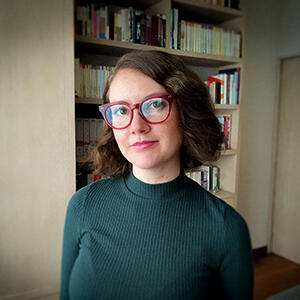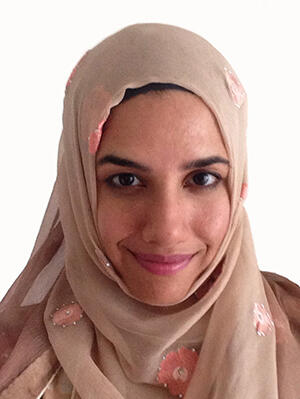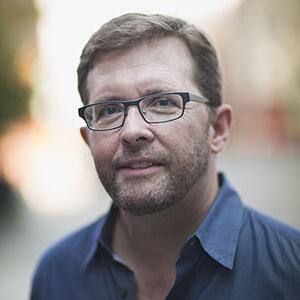Celebrating our new PhD’s in Transition Design for 2022
Carnegie Mellon University’s School of Design is honored to announce our four newest recipients of a PhD in Transition Design. Sofía Bosch Gómez, Hajira Qazi, Chun Zheng, and Alex Wright all successfully defended their doctoral theses in April 2022.
The PhD in Transition Design is an advanced design research program which explores design-led, societal transition toward more sustainable, just futures. Our world-class program develops future design leaders with the capacity to envision and realize purposeful change across a range of complex systems—from food, water, materials and products, to policy, culture, economy, cities, and social movements.
“A PhD is an advanced, design research leadership program,” said Professor Jonathan Chapman, Director of Doctoral Studies at the School of Design. “Yes, there is the certificate, and the original contribution to knowledge that the research makes. But, perhaps more importantly, there is the person. The PhD graduate, who shaped the work but was, in-turn, shaped by the work.”

Sofía Bosch Gómez’s dissertation is titled, “Building a Systemic Understanding of Public Service & Innovation through Design Pedagogy.” “Sofía is a designer and researcher interested in the overlaps between design, public sector innovation, and design education,” said Chapman.
Her research focuses on the role of design and designers within the Mexican public service, taking into account local and pedagogical circumstances in the development of government innovation spaces. She argues that public and social innovation laboratories (PSI labs) within governments have opened practice opportunities for designers, gaining traction through self-defined design-led methods and approaches. In Latin America, design-led PSI labs have also developed extensively in the past decade. However, the region’s past and present context make the relationship between public innovation and design distinct from those in other world regions. In response, she proposes a future pedagogical approach to public innovation by developing a higher- education course curriculum to prompt alternative forms of addressing these problems than the current status quo.

Hajira Qazi’s dissertation is titled “Design and the (Un)Making of Sacred Worlds.” Her doctoral research argues that the principle of ontological design states that the artifacts we design act back on us, influencing our way of being in the world. However, this principle does not give adequate consideration to the role of “worldview” as a critical determinant of what and why we choose to design. Weaving together a number of different disciplinary threads, she explores worldview through the lens of the sacred by juxtaposing the traditional worldview, which centers the sacred in all things, with modernity, which largely diminishes our ability to recognize, let alone protect, the sacred. She investigates the implications of each worldview, analyzing the ways that each manifests vastly different types of worldmaking, worlds, and frames of mind. From this, she argues that it is not sufficient to simply articulate a future vision for our world, but that we must also formulate a collective worldview that would enable us to realize and sustain that imagined future.
“Hajira is a designer and researcher whose work explores how conceptions of the sacred inform an alternative worldview that moves away from the consumeristic aspects traditionally associated with design towards design that fosters resilient and cohesive societies,” said Chapman.

Chun Zheng’s dissertation is “Design for the Sustainment of Urban Commoning Based on Multi-dimensional Scaling Processes.” According to Chapman, Chun’s research “concerns the opportunities and challenges of commoning practices in urban spaces and the comparison of spaces of commonality in western and eastern contexts.”
Her research explores the possibilities of designing for more resilient citizen-led initiatives, also known as “urban commoning,” through the lens of scaling. She argues that the importance that urban commoning plays in contemporary cities makes their sustainment crucial. Commoning can be a response to socio-political, ecological, and economic crises, as well as government’s inadequacies. For commoning practitioners and researchers, her dissertation reframes the criteria of measuring the success of urban commoning, and develops design considerations related to scaling strategies.

Finally, Alex Wright, who has led design and research teams for over two decades at companies including Google, Instagram, Etsy, The New York Times, and IBM, was the last of our 2022 cohort to defend his dissertation, “Regenerative User Experience: Towards a Heuristics of Post-Capitalist Digital Design Practice.”
His research focuses on bridging theory and practice, through developing a curriculum to help UX designers and researchers embed long-term thinking into their professional practices. His research asks: if, as some economists have argued, the world stands on the cusp of a new post-capitalist era, then what role might user experience (UX) practitioners working in industry play in fostering such a transition? He argues that UX practitioners are uniquely positioned to bring about transformative change in for-profit organizations; but that they face mounting obstacles to doing so in increasingly data-driven, mechanistic product development environments. His dissertation explores the barriers that UX practitioners face in trying to incorporate long-term societal and ecological perspectives into their work.
“It would be an understatement to say that I am proud of our PhD graduates,” said Chapman. “What they have achieved is truly amazing, not just the PhD itself, but doing so under such adverse, challenging conditions. Perhaps most importantly to me though, is not simply that these four individuals were able to complete exceptional PhDs, but that they were able to do so in a manner that was collegial, generous, and caring of those around them. For me, this is what it means to operate ‘successfully’ at an advanced level. Not just to complete the work, and for the work to be stellar, but to be able to do it in a way that is not harmful to those around you. I commend all of our PhD graduates in their astonishing achievements, and unflinching collegiality throughout. You are remarkable! "
To our four new doctors, congratulations! You are an inspiration to us all.